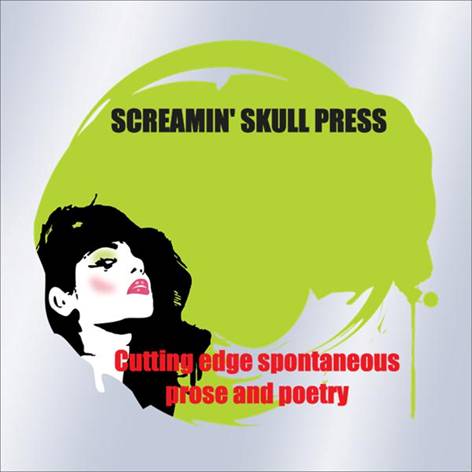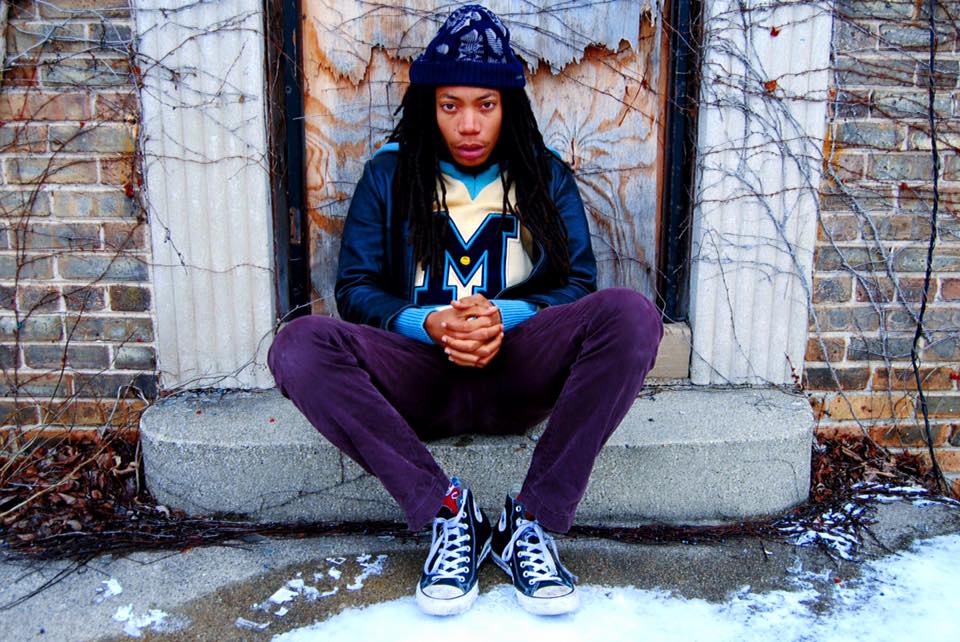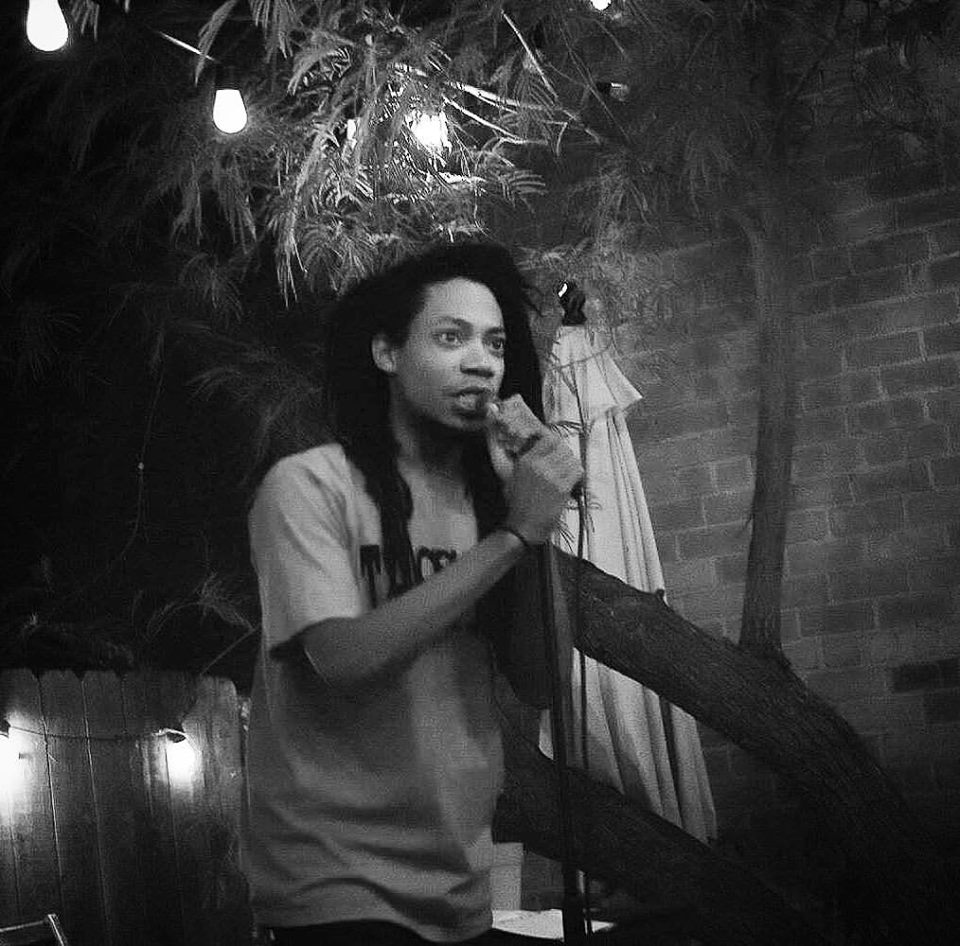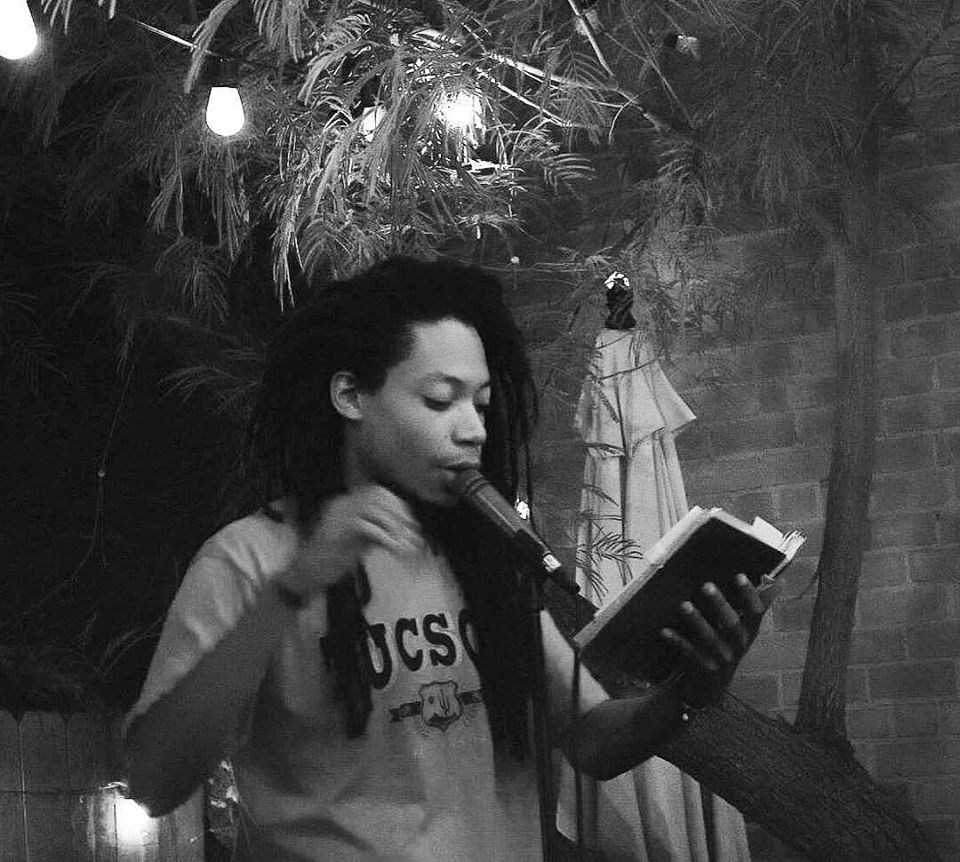Married writers self-publish musical works, capture the underground with indie press
Emily Hoover, Assistant Managing Editor and Fiction Editor
6 October 2016

For Tony and Nicole Nesca, married authors based in Winnipeg, Canada, the mainstream literary community is missing just one thing: fearlessness. This is precisely why Tony started the independent publishing company, Screamin’ Skull Press, back in 1994. Frustrated with hearing again and again that his work was great, but “it just won’t sell,” he wanted to create a space for spontaneity and rebellion in contemporary literature.
“It didn’t take me long to realize that I would probably spend a lifetime in this routine without ever seeing my work in print,” he said. “I wanted to offer an alternative while doing it my way, and no one else’s.”
Tony writes about urban life featuring characters who are on the fringes of society. He is inspired by writers like Hunter S. Thompson, Henry Miller, Charles Bukowski, and Jack Kerouac. He said that, historically, the best art has pushed boundaries.
“If you look back through history, most of the great artistic work came from some kind of underground culture, not all, but most,” he said. “It may have attained commercial success later on, but it didn’t come from towing the line and appealing to the masses.”

Tony Nesca, founder of Screamin’ Skull Press. Photo courtesy of Screamin’ Skull press.
Fast forward twenty-two years, and Tony and Nicole’s non-conformist ethics have paid off some. The “beat-style rock n roll prose and poetry” duo have self-published fifteen books of original poems, novels, and short fiction. All titles may be found on their website, Screamin’ Skull Press.com; the writers have sold their work both online and on various DIY, or do it yourself, book tours across the U.S. and Canada.
“Everyone is consumed with providing bang for the buck commercial entertainment, as opposed to writing from the guts and the heart and saying what’s really on [their] mind,” Tony said. “We need a strong, valid and rich counter-culture; we need to oppose, artistically, not imitate what is going on in the mainstream.”
Nicole, who cites writers like Pablo Neruda and Margaret Atwood as influences, agrees.
“We are living in an artistically and culturally bankrupt time,” she said. “The proliferation of genre literature and film has brought everything down to the gutter and the quality-bar is at an all-time low. Even the underground, for the most part, has failed to produce a proper alternative to the sagging and juvenile mainstream. Tony and I…find most indie work today, with a few very fine exceptions, is mired in genre fiction—you know, zombies, vampires, outer space, detectives, action—all that.”

Nicole Nesca. Photo courtesy of Screamin’ Skull Press.
She sees a place for what she calls “escapist writing”; however, “there is just too damn much of that type of thing, and far too little of everything else,” she said.
As for the largely-academic literary world, Nicole said she “has never been impressed,” instead preferring the literary works of musicians Patti Smith and Bob Dylan and renegade poets Gertrude Stein and Anais Nin.
“[Music] was another thing that brought us together,” Tony said.
The couple met through a website for indie writers called The Writer’s Cafe, and Nicole had agreed to publish her first book, called The Sexual Repression Collection, with Screamin’ Skull Press before “things became personal.” The couple carried on a long distance relationship for over a year before Nicole relocated to Canada—she is originally from Youngstown, Ohio—and they got married ten days later.

A poem by Nicole Nesca, escaping its natural habitat to play in the outer world. Photo courtesy of Screamin’ Skull Press.
“I noticed various styles weaving in and out of Nicole’s work, and I could see the singer/songwriter influence,” Tony said. “There are echoes of Bob Dylan and even Bruce Springsteen in her work, as well as Patti Smith.”
Because Tony played in a bar band for several years before transitioning, full time, to writing, music is essential to the works he creates.
“My work is obviously rock and roll and blues influenced,” he said. “It’s in the very style of the words, the way sentences can go on for pages as a sort of free-flow, street lyric…my writing is heavily influenced by Lou Reed and Tom Waits and John Lennon, and the first wave of punk rock of the late ’70’s.”
He also listed Pete Townsend, Joe Strummer, and Patti Smith as influences and said he and Nicole, as “serious music lovers,” have “a 7000 digital song collection” plus vinyl and CDs, which “number in the hundreds.”
“It was incredible how similar our writing was in spirit, if not stylistically,” Nicole said, referring to when she first encountered Tony’s work nine years ago on The Writer’s Cafe. “We were a perfect fit for each other creatively, as we considered ourselves an opposition, if you will, to the mainstream…and to society as a whole, the everyday working world…We thought that together we would present a solid, unified force of rebellious, subversive, almost anti-literary writing and philosophy.”
The two also agreed that showcasing the work of two authors, rather than “it being just Tony’s work,” would bring the independent press “closer to legitimacy.”
Cover images of Nicole Nesca’s collections.
However, the journey to legitimacy as an indie press has not been an easy one.
“Anything negative, and the only thing negative, I can ever say about doing it yourself is the lack of sales and of exposure,” Tony said. “But on the other hand, there is absolutely nothing negative to be said on the creative side: the ability to do it all yourself, the satisfaction in doing it all yourself, the artistic freedom to write how you will, and about anything you want free of censorship, is immeasurable and worth more than all the money and recognition in the world, though there is nothing wrong with trying to get your writing recognized, trying to make a living from your writing.”
He said there is a major difference between selling out and creating/serving a community of like-minded writers.
“To all indie writers,” he said, “it is not a sin to want to be recognized; we all want our work out there to as wide an audience as possible. The sin lies in changing your writing to suit the masses or to accommodate some fat-cat editor/publisher.”
Cover images of Tony Nesca’s collections.
Nicole said one of the problems indie writers face is the idea of “success.” It is often only measured by money and exposure.
“The main focus in publishing your own books under your own indie press can never be about sales,” she said. “Though we all want them and try hard to attain them, they are very hard to come by. If you’re going to become an indie writer, then you’d better understand that right off the hop. We do want to sell our books, as many as possible, [and] we don’t want to come across like we are basement artists who are happy giving away their work. Success, for me, is the satisfaction in getting that word, that line, that poem, down on the page exactly as I want it. And I’m not going to lie, the recognition and reader approval feels pretty damn fine too.”
Tony has a book of short fiction coming out in the next few weeks called Junkyard Lucy and Nicole said she is working on a hybrid collection of short stories and poems, which should be out late this year or early 2017. Their advice for aspiring indie writers is simple: Go for it.
“If you are anything like us and your writing just doesn’t fit into any of the best-selling genres, you have no other choice,” Tony said. “Mainstream publishing is going the way of the dinosaurs anyway; the Internet has changed everything. One day, one day soon, publishing will be entirely independent—why let large, impersonal publishers take huge chunks of your royalties, not to mention credit, on the promise that they can get you exposure and fame when you can do it all yourself online and reach millions of people?”

A poem by Tony Nesca, as seen in the wild. Photo courtesy of Screamin’ Skull Press.
Tony said enthusiasm for the arts, specifically writing, can be the factor that unites us creatively.
“It can show us how to speak and write what’s on our minds,” he said. “But it can’t bring us together as a society morally or sociologically, and it can’t rid the world of all the violence and negative thinking, unfortunately…But, as Henry Miller said, ‘Even though the world is flushing itself down the toilet, there is still time to sing and dance.’ That is what fearless writing can do—make us dance on the edge, know what I mean?”
For more information on Tony and Nicole Nesca’s works and Screamin’ Skull Press, go to screamingskullpress.com or follow them on Twitter, @ScreaminSkullPr. Following are excerpts from Nicole and Tony Nesca’s works.
Excerpt from Nicole Nesca
…caged chicana livin americana dream west-side ghetto fantastico
welfare-rich food-stamp delicioso got her a gringo an cuatro ninos
full lips pouting from cheap rum kisses smooth easy rider
smile santana style conga beat rounded hips hot hypnotic neighborhood
notice diabla loca’s strut smoky eyes santeria voodoo
good homage tat crucifix praying hands script “la familia” on short thick neck…
petite mama’s tall hard-head held high she says “pride, baby, pride”
pounds her breast over heart makes a cross kisses her finger tips
whispers looks sips on drink rolls up sleeves tugs on jeans
gettin down to business crazy laughter, takes another drag from cig
hanging over stove pots pans banging lips flapping baby on her hip. now fixen a dish…
serving love kitchen happy bandanna held head sweat dripping
twisted english switch-blade tongue fast an sharp
story telling splaining bull-shit logic unfolding mysteries
head spinning she’s staggering kids and music playing…
she says, “you lookin’ all pale and thin. eat somethin’ before you split?
gringa, remember baby round here everything runs. huh?
it’s simple.
so, you an me, we the firework over ‘little eden’ tonight.
we the light that flips on an out and makes em all run. okay?”
drunk and beautiful she laughs and cries in a single sound –
Excerpt from Tony Nesca
…there was an old friend of mine standing at a street corner with back against telephone pole just watching the cars go by and the lights from the liquor store red and blue and purple and orange and yellow and it’s metal-to-metal striking that note just right and the midnight crazies looking to fuck someone up, but we stop and talk and we’re not afraid and we’re not unhappy and we’re even bored kinda feeling the end of something, all the street-junkies hobbling along with their toothless grins and their one-note thinking, and I see the young girls with sad smiles holding on to nothing at all the predators never far, and I think of losing her suddenly and that tragic afternoon under the sun, sometimes a nice car pulls up to the liquor store and the well-groomed move forward their intentions and true meaning as rotten as everybody else’s and the bank accounts ring like a bell as their fucked-up night-world is about to begin, I think of the 1920’s and Dixieland jazz and Billy Holiday and sipping on cold gin at a Parisian café while Picasso strolls by screaming something wild and crazy, and the young victims died in back alleys then as they do now and as long as people are involved, the shit flows, and I need all your love, baby, all of it day and night…
But I see something else now, I see a movie theater with light bulbs shining on the edge of the billboard full of smiling ideas, and I see a late-night pizza joint with small line-up of guys and gals laughing into the darkness, and I see a middle-aged couple kissing in front of a closed record store and I think of good friends and screaming good times and I’m talking about the light-filled moments everywhere all around –
– and it’s day-time now and I am by a river beams of golden light coming through trees and green all around wooded path leading me into that cool-sunshine shiver and I don’t hesitate, I don’t hesitate to smile and to laugh and to feel alright, and the river ripples in the wind bright-diamond-flickers on its surface, opposite bank showing a few apartment buildings sprouting out from the ever-present green of the ever-present trees, a young woman jogs by thighs jiggling in the hot morning shadow, old man walks slowly leaning on cane smiling lovely and new his youth bubbling just under the surface, and we all wanna get along don’t we, between closed teeth she swears again, between lips parted he smokes and says goodbye, and the college students continue with their misguided learnings, and the proletarians can all kiss my ass, and the rejected rejects triumph once again, and above the skyscrapers the superheroes continue their homo-erotic wrestling, I shake god’s hand and give him a wink, he winks back and smiles and scratches his ass, all my love to you I say, and mine to you he says, then he cranks the electric guitar and starts playing some rock and roll, and all across the universe and beyond and through the back-alley love affairs and the switchblade mornings,
the inside of my mind screams happy thoughts –
Land of No Chill: Exploring the Poetic Voice of Lando Chill
Khara House, Staff Poetry Editor
1 August 2016
“The poetry we speak of comes into play as a tool of the oppressed to articulate through art what is and what can be. And with this power comes great responsibility to pick our platforms wisely, and our words true.” ~Lando Chill

Photo by Andalib Z. (@andalilo) in Chicago, Illinois.
It’s 1971: Gil Scott-Heron prophesizes an untelevised revolution in the wake of a political landscape rocked by the struggle for civil rights and a decade plagued by public assassinations of those who dared raise their voices in the name of change. His words—“You will not be able to stay home, brother”—echo even now, reverberating through news headlines that shake us to the core of our comfort zones. In the midst of political and social unrest—the deaths of more than 200 black men at the hands of police, the heart-stopping horror of the Pulse shootings, the killing of police officers in Dallas and Baton Rouge—we find ourselves, almost stunned to silence, balancing treacherously on the brink of the boiling point of violence, racial tension, and a political landscape seemingly shaped by fear-tactics and the ever looming question: “What next?” And we face the visceral question of what to do, how to respond, to save ourselves. Ban Muslims? Build a wall? Disarm the police? Fight fire with fire? Or maybe … use poetry?
Enter an artist like Lando Chill—born Lance Alan in Chicago, Illinois—an artist whose name defies the inescapably raw emotions put on display in both his poems and lyrics. Currently based in Tucson, AZ, Lando is a striking artist: at once humble and fearless, he pulls from multiple threads to weave one unique tapestry of words. Politics and psychedelics. Grief and sex. Racism and relationships. Lando samples it all to serve up a lyrical revolutionary smorgasbord. From the influence of choir gained from his mother, a taste for the arts explored at the University of Arizona’s Film School, and the echoes of artists from Gil Scott Heron to The Roots, Lando isn’t in the League … he is the League.
Though Lando describes himself as an “average” artist, there’s nothing average about him, or the place he’s taking in both poetry and Hip-Hop. His work “breathes poetry,” as Words on the Avenue host Teré Fowler-Chapman eloquently puts it: “It breathes hip hop, and it breathes soul … His work holds this world accountable, inspires this world to celebrate who they are, and encourages this world to serve the people better.” His artistic voice is simultaneously throwback and progressive, an unrelenting voice that speaks truth: truth we may not want to hear, but truth we also may have known all along. It’s a voice that this world—this today—calls for. A voice we may not want to hear. A voice we have no choice but to hear.

Lando Chill reading at Words on the Avenue, in May. Photo by Marco Valencia.
For an artist with “Chill” in your name … where’s yours at? I kid, but in all seriousness: What drives you to work with such “raw” subject matter?
Ha-ha-ha, I lost my chill years ago honestly …I feel as though [we as artists], whether visual or auditory, have a platform or voice that, oddly enough, supersedes a lot of what is truly important. Emotion, pain, death, rebirth…these things we gloss over in conversations with peers and parents; but that’s where the story ends. I feel as though we need the raw, the unfiltered, to break through the barriers we and those who oppress have created, in order to truly transcend our shortcomings in order to make this world a better place. If that means going places or discussing things that might make people uncomfortable, so be it. Art isn’t supposed to be comfortable at all, right?
You once said in an interview, basically, you work with words because you weren’t good at anything else. Tell us a little about the development of your talent.
Oh yes. Ha-ha, that’s somewhat of an over-statement, let my mother tell it, but I stick behind it regardless. Writing became the cathartic tool for emotional release after my father died when I was 3. I was introduced to the pen and journal by my mother as a way to communicate to myself, and no one else, what I was feeling. I wasn’t a very forthcoming child when it came to a few things, so having an outlet, even it didn’t “talk back”, was extremely crucial to me. It wasn’t until I got to college that I really began to hone the skills my mother had passed down to me. Turning old college notebooks from boring classes into rhyme books become the norm for me. I can tell you for certain, I was pretty much average to start out with. There was a rhyme structure I felt like I had to stick to, and the art of creating cohesive emotional themes eluded me. Hip Hop really reined that in for me, giving me a tonal template that I could follow or deviate from as I pleased, whilst being inspired by the emotionality of the song. The interpretation of what that producer was trying to bring to the table is what makes for good Hip Hop. Using that ideology, I began to write as such …Only, with poetry, I was generating these tonal emotions from within. I did have to go through some shit in life to be able to reach and interpret what I was feeling and what I was speaking on, but I think that’s somewhat the key. We all have a story that resides within. It’s just finding the words to be able to do so.
You list Gil Scott Heron as an influence, or at least an artist whose camp you could fall into. In a 2010 piece Fairfax New Zealand described the pervasive mood of his work as “an often beautiful, passionate anger. An often awkward anger. A very soulful anger.” What do you say to that analysis, and what would you call the “pervasive mood” of your own work?
To that analysis, I say bravo. What makes music beautiful, words powerful, song magnanimous, isn’t in its perfection, but in its imperfections.
The pervasive mood of my work…I’d say it were, “in one hand, carry hope and peace. In the other, a right hook if hope peace out.”
There’s a lot on the surface folks could say “sets you apart” from the traditional poet, rapper, artist … What do you say sets you apart?
What sets me apart…
Ha-ha ya know, I’ve got no clue. Maybe it’s my voice? Maybe it’s my word play… or what I speak on…
That’s a great question. I try to stay true to where I come from and who got me there. I feel there’s a box that needs breaking when it comes to being a black man in the United States, who is unconventional in every way, and I’m the one to help do it. I feel like Hip Hop, and music [and musicians] in general, need to be reminded of how powerful we can be… and how the industry perverts and subverts our intentional goals in this world. We, as a people, need to be reminded that we are in total control of our own fate, if we’re brave enough to take ahold of the impossible to make it so. Maybe all of these things I know are true make me somewhat unique, along with the amazing people who have been there for me on this incredible journey, sets me apart.

Lando Chill reading at Words on the Avenue, in May. Photo by Marco Valencia.
We tend to put a lot of emphasis on what’s “good” versus “bad” writing. Tell me, how do you know what’s good?
Ahhhh…I can’t really tell you what bad writing is until I hear it, not gonna lie. There were, and still are, a lot of rules that writing critics and writers alike love to champion. Do I think there should be some structure? Sure. Do I think everyone needs to follow said structure? Hell nahhh. Write from the heart. I believe what we think might be bad writing, could be just something so un-relatable and uninspiring that to us, it has no merit. Don’t get me wrong, there are some shitty writers out there. But it’s hard for me to call something bad, that someone put some sort of effort into. Now good writing…it’s the complete opposite. You find common ground with [an author] and their message. You create your own interpretations and metaphors from the words you’ve just read. You feel as though something or someone you’ve always known was just revealed to you by reading what that penman or woman has put forth into existence. That is what I call good writing.
There’s a lot going on, socially, these days … political mess, cultural and racial tensions, a lot of social movement fueled by hate. Where does poetry come into play? What’s its power in today’s world?
I feel as though poetry has power beyond our wildest dreams. Though for people to truly feel its effect nowadays, they need to hear it. Once they hear it, they’ll feel it. It gets so real for the audience, to hear someone deliver a piece written from the ashes of raw emotion and word, built to its peak and torn down from within. So when the theme of the performance piece is based upon the politics and cultural tensions this country suffers from, I imagine it gets “oh so more real.” I akin it to being one of the closest things a person can equate to walking in another’s shoes: listening to THEIR story, exactly how they would want it to be told. So the poetry we speak of comes into play as a tool of the oppressed to articulate through art what is and what can be. And with this power comes great responsibility to pick our platforms wisely, and our words true.
There’s a prevalence, and it’s palpable, in the Black community of social and cultural accountability and responsibility: what one does impacts the WHOLE community. If it’s shameful, it shames us all. If it’s uplifting, we all get to move up a little. Do you feel that weight in your work? What do you feel, if anything, is your “responsibility” as an artist?
I do feel that weight upon my shoulders but I don’t let it affect my work. And by “it,” I mean walking on eggshells so the white folks don’t get scared or angry. My art is my art, and I’d love for it to be judged as its own, separate entity. But I know, as people of color, our actions and words become the status quo for everyone who looks like us, and if one is dangerous, we’re all dangerous. My responsibility as an artist is to tell my story, and if need be, our story, through music and poetry. My responsibility as a PERSON, is to lead by example, and treat others as I would like to be treated. I believe the two can coincide, but I do feel as though they can be different.
Obviously there’s an answer to whether you think poetry is relevant … What defines the relevancy of poetry today? What’s kept it going?
I feel as though poetry, and writing in general, has lost some of its relevancy in American society because of our educational system, or lack thereof. With art and after-school programs getting cut left and right, and the societal push towards getting “a real job” that’ll “make money” after mortgaging your future in the 4 to 5 years you spent in college, poetry has taken a back seat as a true profession and turned into a hobby. I could say the same thing, to a lesser degree, about music and television. It’s truly up to the youth, and those still of the profession, whether it be a hobby or not, to pass down the joy of writing and keep it alive. We define the relevancy now. No one else is, sadly enough; I feel as though we’ve grown weary of learning from who came before, which has been our biggest flaw as a nation. What’s kept the fire going? The fact that everyone who is privileged enough to have a phone or computer can now have their voices heard, on multiple platforms. We don’t need to go through an editor, ask a publisher when and where; we can do it ourselves, fund it ourselves, share it ourselves, and lord willing, it gets to enough people that the relevancy our words in art once had can be once more.
Where is poetry going? What’s shaping it today? How is it changing? Where do you see yourself in that evolution, or revolution?
Where is it going? As far as we can carry it.
What’s shaping it today? The voiceless.
How is it changing? We all have the power to publish, to share, to educate… The internet is a wonderful thing.
I see myself a martyr, for no one champions what you stood for until you die. In this day and age, the revolution will be the newsfeed.
Lando Chill will be rereleasing his album, For Mark, Your Son, on August 12th, through the music label Mello Music Group. The album is also available for preorder on iTunes. There will be a release party for the album at Club Congress, in Tucson, AZ. on August 12th. Included on the bill will be Tucson’s Riot Grrl Band, Foxx Bodies, also releasing an album, Tucson’s Logan & Lucille, and, from Olympia, Washington, Lisa Prank. Look for an upcoming profile with Foxx Bodies under SlashnBurn’s music section.
To learn more about Lando Chill, including hearing samples of his music and watching some of his music videos and live performances, check out his Facebook page and his website.







